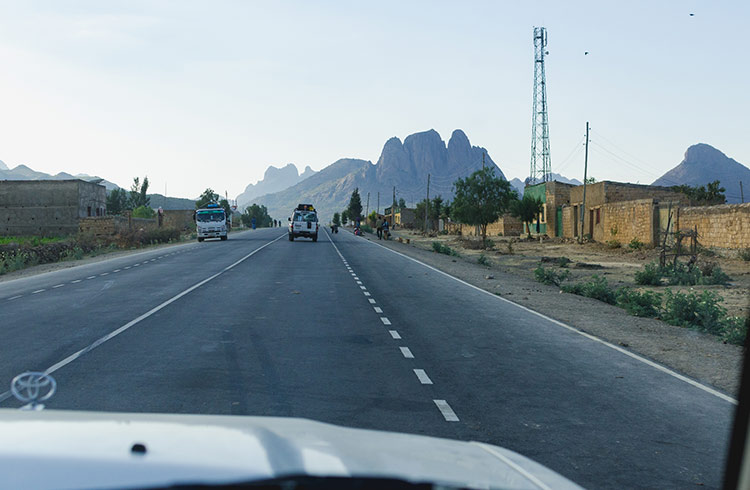Transport in Ethiopia: How to Travel Around Safely
Coronavirus (COVID-19) and travel: The situation around the world is changing dramatically. Various governments have changed their travel warnings to restrict travel during this time. To understand how this may impact cover under your policy, please go to our FAQs and select your country of residence.
For the latest travel warnings and alerts around the world, read about lockdowns and border restrictions.
Get ready to embrace a challenging transport system in Ethiopia if you want to go beyond the capital city, Adidis Ababa.
 Photo © Getty Images/Dan Gold
Photo © Getty Images/Dan Gold
This is what you need to know about getting around Ethiopia safely.
How safe are the roads in Ethiopia?
Ethiopia has a high rate of traffic fatalities, and driving is not for the inexperienced or nervous driver. Excessive speed, unpredictable local driving habits, pedestrians and livestock make driving in Ethiopia dangerous. There is also very little concern for the safety standards of vehicles in the country, which leads to further hazards on Ethiopian roads.
Ethiopian roads are poorly maintained, badly marked and have limited lighting for drivers at night.
If you choose to rent a car and drive around Ethiopia, prepare for some nerve-wracking, bumpy rides.
Avoid driving at night outside urban areas, as it can be dangerous due to broken down vehicles, animals crossing the roads, and potential roadblocks, plus the threat of armed robbery.
Be extra cautious and study the route you intend on driving before setting out to avoid any distractions. Ask locals or accommodation staff for advice on the best routes to take if offline, downloaded maps are unreliable.
Public transport in Ethiopia
Rideshare apps aren't popular in Ethiopia due to poor internet connectivity, so taxis are still one of the best ways to get around. Try to use metered yellow taxis, which are in a better condition than blue or white taxis.
Public transport in Ethiopia can be unreliable, however, Skybus and Selam are two comfortable bus companies, and operate between Addis Ababa and a few other major hubs around the country.
Minibusses run like taxis and are a cheap and fast way to get around cities. However, they are often in disrepair and aren't the safest method of transport. Try to avoid using minibusses at night for your own safety.
Tips for driving in Ethiopia
Be smart if you get behind the wheel in Ethiopia. Here are a few things to keep in mind if you are driving:
- Always carry spare tires, fuel, and tools to repair any damage on long trips, as there is no roadside assistance
- Keep your doors locked and windows closed
- Keep bags, purses, and valuables out of sight – place them in the trunk, on the floor, or in the glove compartment
- Never open your doors or windows to speak to someone on the street, especially beggars; never give to beggars.
Land mine danger
While traveling during the day, on paved and unpaved roads, is generally considered safe, land mines and other anti-personnel devices can be encountered on isolated dirt roads that were targeted during various conflicts, especially along the Eritrean border.
Before you do any off-road travel in Ethiopia, it is important you ask locals authorities to ensure the area has been cleared of mines. Better yet, avoid going off-road on your own – this is best done with a reliable, trustworthy tour operator.
Listen to The World Nomads Podcast: Ethiopia
Get a travel insurance quote for Ethiopia
You can buy at home or while traveling, and claim online from anywhere in the world. With 150+ adventure activities covered and 24/7 emergency assistance.
Simple and flexible travel insurance
You can buy at home or while traveling, and claim online from anywhere in the world. With 150+ adventure activities covered and 24/7 emergency assistance.
Get a quote
No Comments